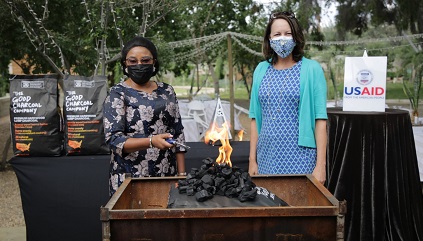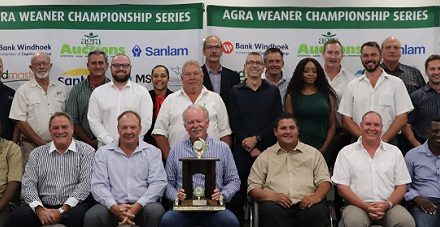
Understanding Meatco’s new business model
Meatco is moving to eliminate obstacles that communal producers face in the Northern Communal Areas (NCAs) as they battle to gain entry to beef marketing channels. However, Meatco’s new business model, a first of its kind in Namibia let alone Africa, should have producers in the NCA optimistic.
The pivotal aspect of the meat processors presence in the communal areas, is the implementation of a roving mobile abattoir. Meatco’s continued operation in the NCAs through a mobile abattoir will be mutually beneficial as the key issue of the transportation of animals is to be eliminated. Meatco said this week it will bring the abattoir to the farmer through the new model.
“The marketing of cattle involves more than just achieving the highest price for your animals; it involves producing a product the market wants and marketing that animal through the best outlet and at the best time.”
Meatco’s Executive for Stakeholder Relations Vehaka Tjimune, explains that the mobile unit will be used for general slaughter purpose. The unit consists of bleeding, skinning, eviscerating, splitting and cooling areas as well as a mechanical room.
Using the roving abattoir, Meatco is confident that it can grow its footprint in the Northern Communal Areas thereby improving market access for producers north of the Veterinary Cordon Fence.
Mobile slaughtering units allow flexibility for both producers and Meatco. Livestock travel the shortest distance possible, helping to improve the quality of the beef while food safety and hygiene standards can be controlled by Meatco.
Tjimune said operations will continue in those communal areas which have not been affected by the presence of foot and mouth disease (FMD). Mobile slaughter units can also be used in areas south of the veterinary cordon fence. This provides access to cattle of better quality which are not marketed through the formal slaughter channels at the moment.
The six months of FMD restrictions affected producers as they could not provide for their families through cattle farming from which most earn an additional income. “Through our Livestock Procurement department, we strive to make more marketing possibilities available to communal producers,” said Patrick Liebenberg, Meatco’s Procurement Manager for Communal Areas, explaining that payment for cattle bought by Meatco in communal areas is immediate.
Another first for the company is the Meatco-owned Cattle (MoC) scheme that enables it to secure cattle through binding contracts with producers. Via this scheme, Livestock Procurement buys cattle early that are then reared by producers until they are ready for slaughter.
Cattle delivery to Meatco’s feedlot is another way in which the corporation implements new marketing possibilities. There have also been a few new developments since December 2015, including the building of two mobile loading ramps by the Livestock Procurement department with assistance from the Meatco Foundation.
The seventy-two constructed crush pens that Meatco has identified not only provide easy access to villages, but are also easily accessible to the producers who are familiar with assembly points where Meatco holds information days. Meatco regularly conducts assembly days or permit days in the NCA and in the communal areas south of the Veterinary Cordon Fence. On these days, farmers can bring their cattle to a central point for auction.
“These ramps help communal farmers load their cattle directly from the farm, so they no longer need to trek cattle on the hoof to suitable shared loading points. These new loading ramps can go practically anywhere. Through these and other initiatives in the pipeline, Meatco is working to eliminate obstacles that communal producers face to ensure that they maximise their profits and thus enhance their living standards. It also improves the working relationship with the company.”
“Meatco will operate under similar regulations followed by the already existing C-grade abattoirs in regards to municipal regulations as set out by the respective town or village councils” Tjimune concluded adding that Meatco assures producers in the NCA of their commitment to all stakeholders with a media campaign focused on addressing the grey areas around the new operations in the NCAs.











































